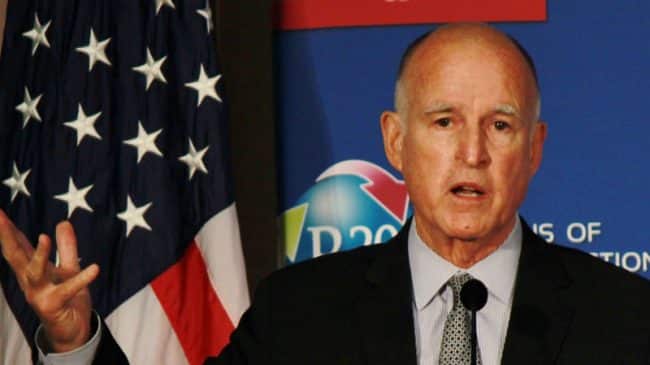Gov. Jerry Brown says California has a $57 billion backlog in transportation-related repairs and, once again, he says the state needs to raise taxes to pay for them.
The governor is right in one way: California’s state-controlled roads are in abysmal shape. Reason Foundation’s most recent Annual Highway Report found California ranked 49th out of 50 states in urban pavement condition and 36th in rural pavement condition. But, it’s not at all clear how raising taxes would help. California already spends more than nearly every state in the country when evaluated per mile of state-controlled roadway. From road maintenance to state highway office administration costs, California spends more than most.
According to the Legislative Analyst’s Office, as of May of 2014, Caltrans wastes millions of dollars planning for projects it cannot possibly build. The department fails to properly maintain its highway traffic management systems. Caltrans has 3,500 more architects and engineers than it needs. One California engineer spent 55 work days golfing at taxpayers’ expense. And a staggering 62 percent of transportation projects went over budget.
Then there is the problem of what Gov. Brown wants to spend transportation money on. He wants to spend $1.8 billion on the proposed high-speed rail line between Los Angeles and San Francisco, a project that still lacks an accurate budget and has little chance of being completed. The governors budget chases the train dream but fails to fund the state’s greatest transportation needs. It spends significant funds on bridge repairs but often not on the bridges in the worst condition.
Albert Einstein once said, “Doing the same thing over and over again and expecting different results is the definition of insanity.” Yet, Gov. Brown’s budget does exactly that by asking for more money for wasteful Caltrans while not fixing any of the underlying problems.
Frustrated by the state’s incompetence and inefficiency, 19 counties, including Orange County, have become so-called self-help counties, enacting local sales taxes to help fund transportation. Sales taxes are a poor method of funding transportation because there is no link between how much someone buys and how much transportation infrastructure they use. However, given the problems at the state level, the decision to try to address problems at the local level is at least understandable.
The state needs to take a number of steps to fix its problems. First, eliminate excess staff. This could be accomplished by not filling empty positions, early retirements and other means. There is no reason to employ 3,500 extra engineers and architects. Second, focus on statewide priorities. Many local governments see Caltrans getting involved in local projects as more a curse than a blessing. In most cases, state highways should be Caltrans’ most pressing priority. Third, eliminate unnecessary projects like the high-speed rail system. Fourth, copy how states like North Carolina and Virginia use metrics to select projects. Such processes help to limit political prioritization of projects and focus money on projects that reduce congestion and improve mobility. Fifth, fix the construction process. States like Texas build projects much more cost-effectively than California and its likely that our state can adopt some of their business practices. Finally, reform public unions. Yes, union reforms are a tough political lift but most politicians on both sides of the aisle agree that union costs are a big reason transportation projects in California are so costly.
Gov. Brown should not be asking for more tax money until Caltrans is reformed. When a government agency is failing, you can’t just throw more money at it.
Baruch Feigenbaum is a transportation policy analyst at Reason Foundation.

